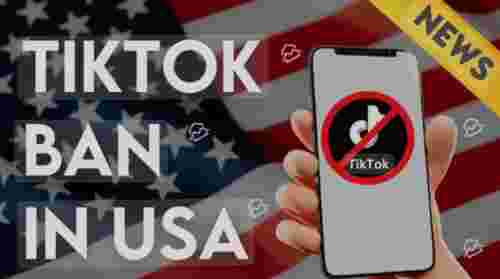
TikTok is set to present its case on Monday against a new law that could lead to its ban in the United States unless its Chinese parent company, ByteDance, sells its ownership within nine months. This measure, signed into law by President Biden in April, arises from fears that user data in the U.S. could be exploited by the Chinese government.
TikTok and ByteDance have consistently denied any connections to Chinese authorities, and have characterizes the law as an “extraordinary intrusion on free speech rights.” The platform, which boasts over 170 million American users, will argue its position before a three-judge panel at a Washington DC appeals court.
Joining company representatives will be eight TikTok creators, including a Texas rancher and a Tennessee baker, who assert that the platform is vital for promoting their businesses and livelihoods.
Lawyers from the Department of Justice (DoJ) will present the government’s arguments, highlighting concerns about potential data security risks and the possibility of TikTok being utilized by the Chinese government to disseminate propaganda to U.S. citizens.
Advocates of freedom of speech, as protected by the First Amendment of the U.S. Constitution, caution that enforcing the divest-or-ban law may empower authoritarian regimes worldwide to impose similar restrictions on their citizens’ access to diverse information and media.
“We shouldn’t be surprised if repressive governments the world over cite this precedent to justify new restrictions on their own citizens’ right to access information, ideas, and media from abroad,” said Xiangnong Wang, a staff attorney at Columbia University’s Knight First Amendment Institute.
He also remarked on the vagueness of lawmakers regarding the specific national security threats related to TikTok. “We can’t think of any previous instance in which such a broad restriction on First Amendment rights was found to be constitutional on the basis of evidence that wasn’t disclosed,” he emphasized.
Contrarily, James Lewis from the Center for Strategic and International Studies argued that the legal framework for the law is strong and could withstand judicial scrutiny. “The substance of the case against TikTok is very strong,” Mr Lewis said.”The key point is whether the court accepts that requiring divestiture does not regulate speech.” Mr Lewis added that the courts usually defer to the president on national security matters.
Experts anticipate that the appeals court’s decision may unfold over a prolonged timeline. According to Mike Proulx, vice president and research director at Forrester, “Nothing gets resolved next week. This is a high-stakes and very complicated conundrum that will likely go all the way to the Supreme Court.”






















